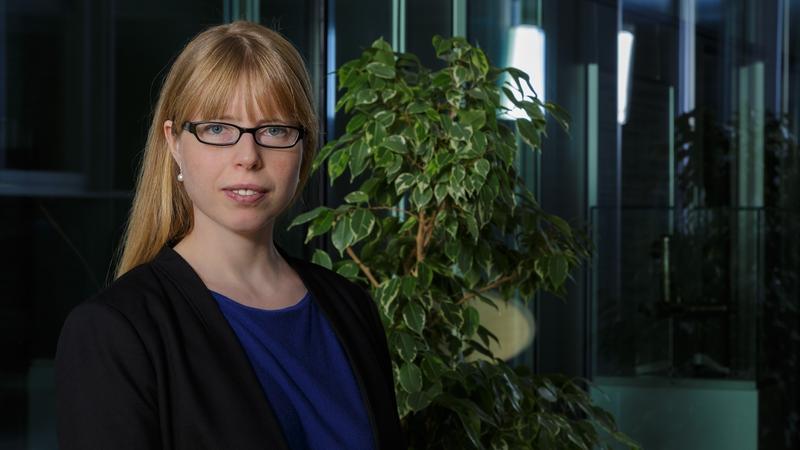
Quantum Systems Self-Correct: New Method for Data Protection

Quantum theorist Christine Muschik
IQOQI Innsbruck/M.R.Knabl
An international team of researchers from Innsbruck, Harvard, Copenhagen and Waterloo put forward a new method to protect quantum information stored in trapped ions. In their new proposal, the authors use dissipation (i.e. the interaction of a quantum system with its environment) to correct quantum states. Dissipation is typically considered harmful, but as demonstrated by Florentin Reiter and colleagues, it can be tweaked to work in a quantum engineer’s favor.
Standard quantum error correction schemes are performed by applying a sequence of gates in a logical quantum circuit and rely on measurements by classical devices. The new dissipative approach does not require a logical circuit and dispenses also with measurements.
“The whole error correcting process happens autonomously at the microscopic level, such that quantum systems can correct themselves”, said co-author Christine Muschik, of the Department of Theoretical Physics at the University of Innsbruck and the Institute of Quantum Optics and Quantum Information at the Austrian Academy of Sciences.
The new approach has important practical applications for high-precision measurements. “We showed how the new dissipative correction mechanism can be used to enhance the precision for sensing weak magnetic fields”, Muschik said. These results open new avenues for improving high-precision sensing schemes with trapped ions and constitute a stepping stone towards the paradigm of self-correcting quantum information processing.
Publication: Dissipative Quantum Error Correction and Application to Quantum Sensing with Trapped Ions. F. Reiter, A. Sørensen, P. Zoller, and C. Muschik. Nature Communications 2017 DOI: 10.1038/s41467-017-01895-5
Contact:
Christine Muschik
Department of Theoretical Physics
University of Innsbruck
phone: +43 512 507-52263
email: christine.muschik@uibk.ac.at
Christian Flatz
Public Relations Office
University of Innsbruck
phone: +43 512 507 32022
email: christian.flatz@uibk.ac.at
http://dx.doi.org/10.1038/s41467-017-01895-5 – Dissipative Quantum Error Correction and Application to Quantum Sensing with Trapped Ions. F. Reiter, A. Sørensen, P. Zoller, and C. Muschik. Nature Communications 2017
http://www.uibk.ac.at/th-physik/qo/ – Quantum Optics Group












